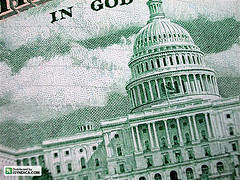Jobs: a Fortune 500 Epic Fail

Last Friday’s Bureau of Labor Statistics’ report was brutal: a scant 18,000 jobs were created in June. Many look to big business for answers — especially those corporate leaders who joined President Obama earlier this year for his job summit.
Unfortunately, they are looking the wrong people.
According to the WSJ, Big Business slashed 2.9M domestic jobs in the 2000s while creating 2.4M overseas. In fact, all of the net job growth in the last 35 years did not come from Big Business. Those jobs came from entrepreneurs.
This later claim came from a great article from Henry Nothhaft: “What if they Listened to Entrepreneurs?” He makes a compelling call for politicians to start listening to entrepreneurs on job creation, and not captains of big business.
Nothhaft has serious street cred. As a serial entrepreneur, he created 6,000 jobs and return $8B back to investors over his 35-year career. He last founded Danger, the creator of the T-Mobile Sidekick which was later acquired by Microsoft for $500M.
Plainly put, Nothhaft is rightly irked at the Fortune 500’s whitewashing in Washington DC on job creation:
So what can government actually do to spur job growth? Nothhaft first points to the underfunded US Patent Office:
But he holds his greatest criticism on the US’ shrinking manufacturing base. Citing the lack of funding support from both VCs and the US government, Nothhaft zeros in on the critical link between manufacturing and R&D:
His arguments are some of the most compelling for states and DC to start paying attention to entrepreneurs. Consider this article required reading for politicians and their economic development staff, and forward it accordingly.
